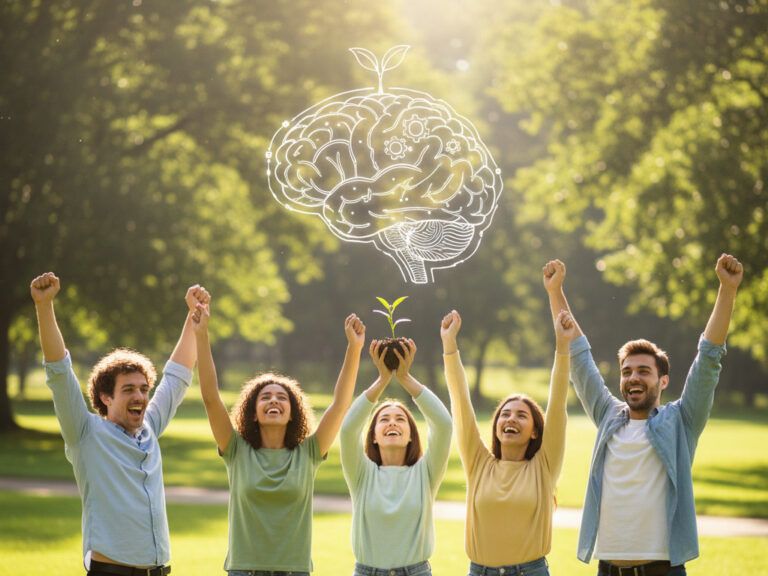For years, the cornerstones of mental health treatment were talk therapy and medication. While these remain powerful and vital tools, the field of psychiatry is currently undergoing a quiet revolution, leveraging technology to offer sophisticated, brain-based therapies. These innovative treatments move beyond traditional symptom management to directly target and retrain the underlying neurological patterns associated with mental health conditions.
At Mental Health Minds, we are committed to providing comprehensive care, which means staying at the forefront of these advancements. Understanding the science behind these therapies can offer new hope, particularly for individuals whose symptoms haven’t fully responded to conventional approaches.
What Are Brain-Based Therapies?
Brain-based therapies utilize advanced technology to interact with the nervous system, aiming to normalize brain function and promote neuroplasticity—the brain’s incredible ability to reorganize itself by forming new neural connections. These treatments are non-invasive and focus on modulation, meaning they gently encourage the brain to adopt healthier, more balanced patterns of activity.
The goal is not to force a change but to provide the biological conditions necessary for the brain to heal itself, creating a stronger foundation for emotional stability and cognitive function.
Key Innovations in Brain-Based Treatment
Several key modalities are leading the charge in this new era of precision mental health care. While these services may require in-person administration at a specialized clinic, a psychiatrist can integrate them into a comprehensive telehealth-managed plan.
1. Repetitive Transcranial Magnetic Stimulation (rTMS)
What it is: rTMS uses focused magnetic fields to painlessly stimulate specific areas of the brain that are underactive in conditions like Major Depressive Disorder (MDD), anxiety, or Obsessive-Compulsive Disorder (OCD). A large electromagnetic coil is placed near the forehead, delivering brief magnetic pulses.
How it helps: For treatment-resistant depression, for example, rTMS targets the left prefrontal cortex, stimulating nerve cells and enhancing communication in mood circuits. This stimulation is non-invasive, requires no anesthesia, and allows patients to resume normal activities immediately.
2. Neurofeedback (EEG Biofeedback)
What it is: Neurofeedback is a form of biofeedback that measures brainwaves (electrical activity) using sensors placed on the scalp. The patient then views their brain activity in real-time on a screen, often represented by a simple video game or auditory tone.
How it helps: This therapy is essentially a workout for the brain. The individual learns to consciously—or unconsciously—regulate their brain activity by receiving a reward (e.g., the video moves, the tone changes) only when their brain produces the desired, balanced pattern of waves. This can be highly effective in training the brain to manage symptoms of ADHD, anxiety, and sleep disorders.
3. Vagus Nerve Stimulation (VNS) and Electroconvulsive Therapy (ECT)
While highly specialized and often reserved for severe cases, these treatments highlight the breadth of biological intervention:
- VNS involves stimulating the Vagus Nerve—a crucial nerve connecting the brain to major organs—to help regulate mood centers in the brain.
- ECT is a powerful, modern, and safe procedure (performed under anesthesia) that remains one of the most effective treatments for severe, life-threatening depression that has not responded to any other intervention.
Integrating Brain-Based Therapies with a Holistic Plan
It is crucial to understand that these advanced treatments are not meant to replace therapy or lifestyle changes; they are designed to enhance them. The most successful treatment plans are multimodal, meaning they combine several approaches:
- Biological Stabilization: Using medication and/or a brain-based therapy to normalize brain function and reduce the intensity of symptoms.
- Psychological Skill-Building: Utilizing talk therapy (CBT, DBT, etc.) to develop coping skills, process trauma, and address cognitive patterns.
- Holistic Support: Incorporating factors like nutrition, exercise, and sleep hygiene to support the brain’s newfound stability and promote overall well-being.
By creating a stable neurological foundation, brain-based therapies often make individuals more receptive and responsive to the insights and tools gained through traditional psychotherapy.
The future of mental health lies in precision and integration. If you or a loved one have struggled to find consistent relief with traditional methods, it may be time to explore how these cutting-edge, brain-based options can unlock a new level of recovery and potential.
